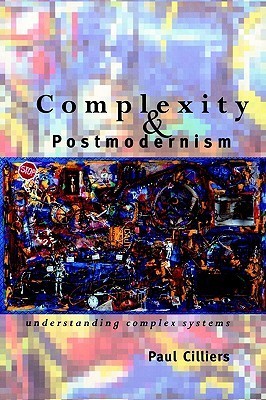What do you think?
Rate this book


explores the notion of complexity in the light of contemporary perspectives from philosophy and science. The book integrates insights from complexity and computational theory with the philosophical position of thinkers including Derrida and Lyotard. Paul Cilliers takes a critical stance towards the use of the analytical method as a tool to cope with complexity, and he rejects Searle's superficial contribution to the debate.
168 pages, Paperback
First published February 12, 1998